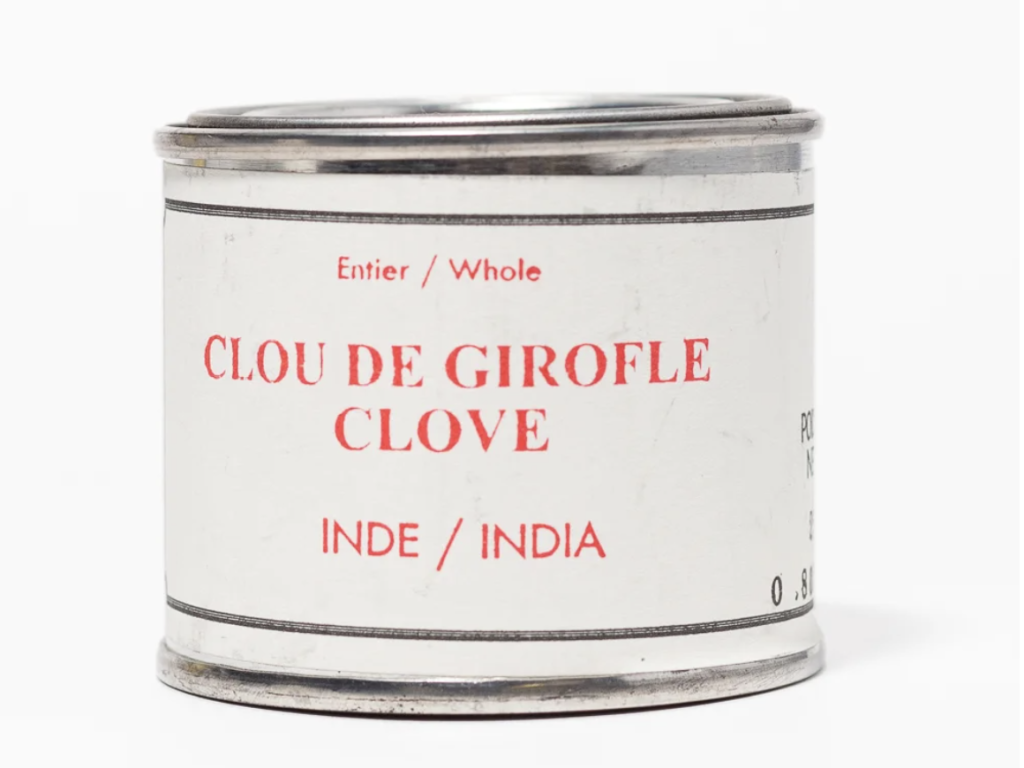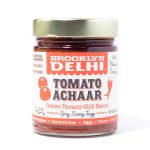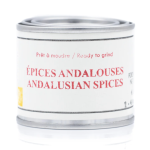Excerpt from Ari’s Top 5 enews
An easy way to add exceptional flavor to your cooking and baking
Épices de Cru’s Indian cloves have been one of the biggest culinary eye-openers for me over the last few years. They are so, so much better than any clove I’ve ever come across. What makes them so special? Co-founder Philippe de Vienne has told the story of these cloves so beautifully that I’ll just leave it here as he told it to me:
Great cloves usually come from equatorial islands like Indonesia or Zanzibar. As a general rule, Indian cloves are of poor quality. Traders pay rock-bottom prices to farmers who put a minimum effort into production, sorting, etc. so they have little incentive. Typically, all cloves at various stages of maturity are stripped off the tree in one picking, then are dried and packed together.
The clove is a much-misunderstood spice and the most probable culprit is the nefarious “sixty cloves in the roast ham.” If you don’t like the taste of that kind of ham, you are a most sensible person. It’s like putting 60 anchovies on a pizza or splashing on half a bottle of perfume. Too much of a good thing just overwhelms the other ingredients. Cloves are powerful, and probably the most useful of spices. One or two cloves in most dishes add a wonderful aroma: most spice blends that incorporate it have only two to five percent of cloves in them. Two cloves stuck in an onion for chicken broth or ground up with herbs and garlic for a roast will give a wonderfully almost indiscernible aroma. This is where buying the best is inexpensive; even if you use one or two cloves a day it will takes months to go through a can.
A few words about Najeeb and Shihab from whom we get these special cloves. They are two childhood friends. Our friend Sudheer introduced us to them eight years ago, at our request, after we’d seen—to our surprise—some pretty good cloves at his place. When we visited Najeeb and Shihab’s village we understood why. The village is located in a semi-desert area of Kerala, built around huge basaltic hills, in the crags of the hills there are verdant oases, where life flourishes. Over the years we have encouraged Najeeb and Shihab to improve the quality, to put more care in the whole process. They have responded in kind. When we first visited they lived in modest homes they rented and sold bulk cloves. Over time they have learned how to improve the quality and prospered.
When we visited last February they proudly showed us their new homes and as we sat having tea in the parlor, in typical Muslim manner they put a paper bag on the table and said nothing. We looked in and found the cloves that are now sold as “special selection.” They were all perfect. Their faces beamed with pride but they explained that these cloves were much more expensive. We explained that we understood why and agreed to pay the price they were asking for the five kilograms they had produced that year. They only had produced a small amount because they have been so conditioned that they could not believe that someone would actually pay the value of such hard work.
Are these cloves really as good as they sound? Yes. Absolutely. They fit beautifully into the definition of “quality” that I’ve written about in “A Taste of Zingerman’s Food Philosophy”—they’re incredibly full-flavored and totally traditional in the way they’re grown, harvested, and dried. I’ve been adding these very special cloves to soups and stocks liberally over the last few months. They are excellent ground and used for baking. As Deborah Madison shares in Vegetarian Cooking for Everyone, she uses them as a secret ingredient in her cream of tomato soup! Truly, all it will take is a quick smell from the Épices de Cru tins at the Deli and you’ll probably be ready to add them into your cooking and baking.



